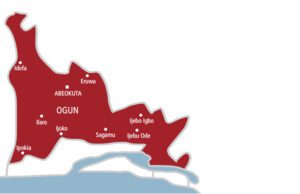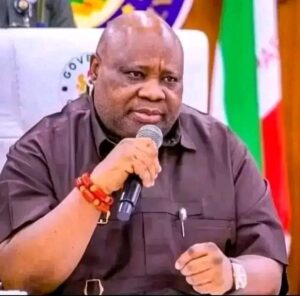
Over 11,000 vulnerable households enrolled under our Conditional Cash Transfer coverage — Sanwo-Olu
By Moses Adeniyi
Lagos State Governor, Mr. Bababjide Sanwo-Olu has disclosed that over 11,000 vulnerable households in the State have been brought under the coverage of the Conditional Cash Transfer programme crafted to ameliorate poverty in the State.
Nigerian NewsDirect gathered that over 11,000 households were selected from 12 Local Government Areas/Local Council Development Areas of the State (LGAs/LCDAs).
The State implementation of the Conditional Cash Transfer now covering over 11,000 households, was initiated in April, 2020 amidst COVID-19 pandemic to reduce the sufferings of the poor and vulnerable citizens in Lagos State.
Governor Sanwo-Olu, however, has hinted that his Administration plans to extend the coverage to all the 20 LGAs and 37 LCDAs for a statewide coverage.
Governor Sanwo-Olu disclosed this at an interactive session with beneficiaries of the National Social Investment programme in Lagos State, organised by the State’s Ministry of Wealth Creation and Employment held on Thursday at the Nigerian Police College, Ikeja, the State Capital.
“It is an indisputable fact that this Social Investment Programme comprising the Conditional Cash Transfer, Government Enterprise Empowerment Programme (Tradermoni, Marketmoni and Farmermoni), National Home Grown School Feeding and the N-Power programme, has continued to make positive impact in the lives of the beneficiaries and the economy across the Country.
“For instance, the National Home Grown School Feeding programme is a perfect example of how the implementation of one policy designed to achieve a specific goal can have a multiplier effect on other sectors of the economy.
“This programme has created opportunities in the chain of service providers including Farmers and Caterers who are actively engaged to ensure steady supply of nutritive diet to our pupils.
“Our Administration approved the commencement and implementation of the Conditional Cash Transfer Programme in April, 2020 amidst COVID-19 pandemic to reduce the sufferings of the poor and vulnerable citizens in Lagos State. Presently, over 11,000 households across 12 LGAs/LCDAs have been enrolled under the CCT programme which would be cascaded to the remaining of LGAs/LCDAs,” he said.
He promised to continue to collaborate with the Federal Government through the Ministry of Humanitarian Affairs, Disaster Management and Social Development and other relevant stakeholders to ensure that Lagosians receive a fair share of these Social Intervention Programmes .
In her address, the State’s Commissioner for Wealth Creation and Employment, Mrs. Yetunde Arobieke lauded the selective beneficiaries of the National Social Investment Programmes (NSIP) for attending the session.
She said, the programme was the result of the great humanitarian strides and efforts of Governor Sanwo-Olu and particularly his compassionate heart towards the downtrodden, vulnerable and indigent citizens in the State.
N-power programme, National Home-Grown School Feeding Programme (NHGSFP), Household Uplifting Programme, otherwise known as Conditional Cash Transfer (CCT); and Government Enterprise and Empowerment Programme (GEEP), were initially under the Office of the Vice-President of Nigeria, Prof. Yemi Osinbajo (SAN), but were moved to the Federal Ministry of Humanitarian Affairs, Disaster Management and Social Development in 2019 following the creation of the Ministry. The programmes are being implemented by the 36 States of the Federation including the Federal Capital Territory (FCT).
The suite of programmes under the NSIP focuses on ensuring a more equitable distribution of resources to vulnerable populations, including children, youths and women.
Harping on the N-power programme which was strategically established to equip young Nigerians between the ages of 18 to 35 years with the tools and skills necessary to succeed and thrive, Arobieke said the State government has done well with the programme.
“For the first time in the history of Nigeria, over two million unemployed youth were engaged by the Federal Government for a period of two years while in Lagos, over 500,000 (five hundred thousand) beneficiaries benefitted with varying amounts of monthly stipends,” Arobieka said.



